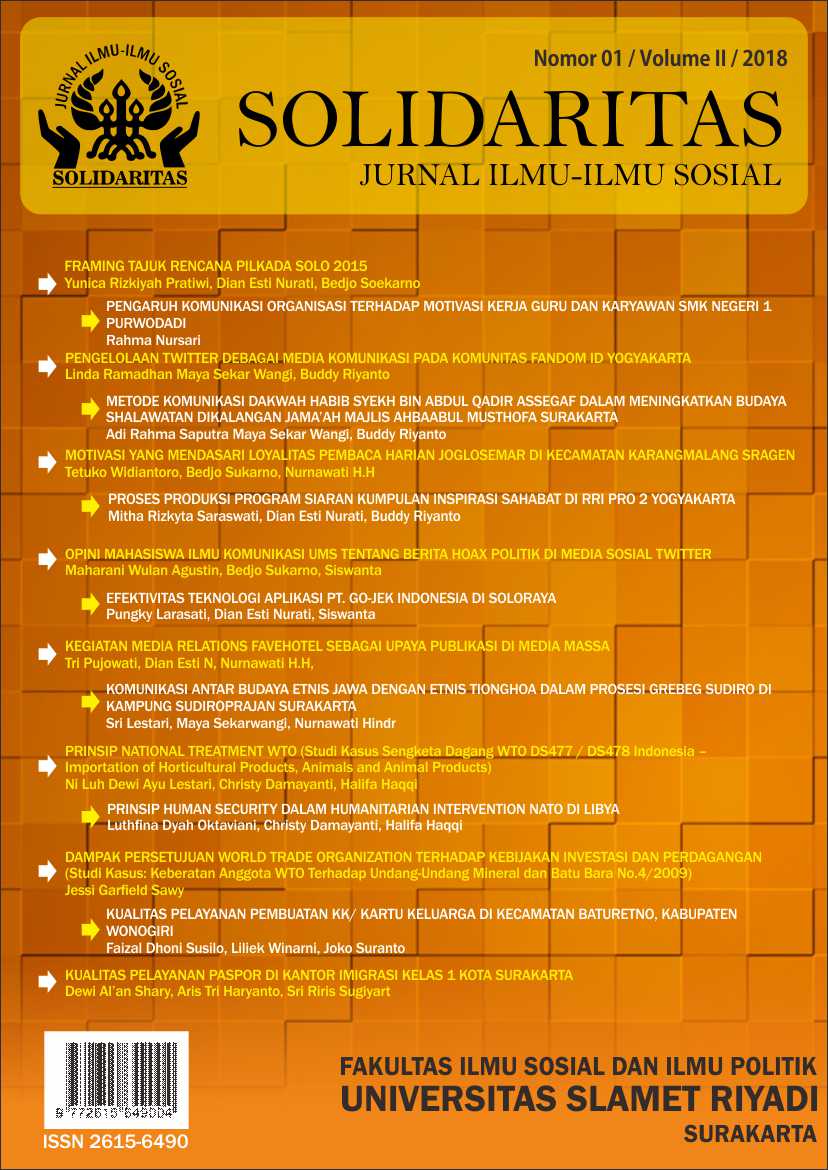PRINSIP HUMAN SECURITY DALAM HUMANITARIAN INTERVENTION NATO DI LIBYA
Abstrak
This thesis aimed to discuss Human Security principle in NATO’s Humanitarian Intervention in Libya in the conflict occurring between Moammar Khadafi, and opposition group (NTC) and Libyan people. This conflict occurred due to people’s dissatisfaction with Khadafi’s dictator leadership. Some elements of human security were also broken by Khadafi’s regime. During the conflict, many people became the victim of violence and human right infringement committed by Khadafi and his proponent soldiers. UN’s Security Council released resolution no.1970 on February 26, 2011 imposing mild sanction to Khadafi. However, this resolution did not lead Khadafi to cease his action. Thus, UN’s Security Council released again the resolution no. 1973 underlying military intervention by NATO. This intervention aimed to stop infringement against human rights by Moammar Khadafi’s government against civilians. The theories employed to analyze this thesis were international organization, human security, and humanitarian intervention. This thesis was studied using a qualitative research. The type of data employed was secondary data; technique of collecting data used was library study taken from document, journal, and internet. From the result of research, it could be concluded that humanitarian intervention could be done when human right infringement occurred in a country, but it still had humanity intervention, and accompanied with national interest of NATO’s dominant member countries.
Keywords: Human Security, Libyan Political Crisis, Humanitarian Intervention





